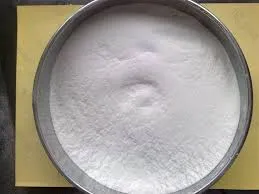
Out . 31, 2024 15:21 Back to list
Applications and Properties of Hydroxyethyl Cellulose in Various Industries
Hydroxyethyl Cellulose (HEC) Properties and Applications
Hydroxyethyl cellulose (HEC) is a non-ionic, water-soluble polymer derived from cellulose, a natural polysaccharide. It is produced by the etherification of cellulose with ethylene oxide, resulting in a modified cellulose that exhibits unique rheological properties and versatility. HEC's chemical structure allows it to form a viscous solution when dissolved in water. This property makes HEC a popular choice in various industries, including pharmaceuticals, cosmetics, food, and construction.
Hydroxyethyl Cellulose (HEC) Properties and Applications
In the pharmaceutical industry, HEC serves multiple purposes. It is widely used as an excipient in drug formulations, particularly for controlled-release systems. HEC can modulate the release rate of active pharmaceutical ingredients, ensuring that they are released at a predictable rate over time. This is particularly beneficial for drugs that require consistent plasma levels for efficacy. Additionally, HEC is employed as a binder in tablet formulations and as a suspending agent in liquid formulations, enhancing the bioavailability and stability of many pharmaceutical products.
hydroxyethyl cellulose hec

The applications of HEC extend to the food industry, where it is utilized as a thickener and stabilizer. It can improve the texture and mouthfeel of products such as sauces, dressings, and dairy products. HEC is also recognized for its ability to retain moisture, which is particularly important in baked goods and other food products, thereby improving shelf life and preventing spoilage.
In construction, hydroxyethyl cellulose is used as a water-retention agent in cement-based formulations. This property is crucial for ensuring proper hydration of cement, which enhances the strength and durability of concrete structures. It also improves the workability of construction materials, making them easier to apply and spread.
While hydroxyethyl cellulose is generally regarded as safe and compatible with various formulation systems, it is essential for manufacturers to consider its concentration and the specific requirements of their applications. Additionally, it is worth noting that HEC is available in various grades, allowing for customization to meet specific performance criteria.
In conclusion, hydroxyethyl cellulose is a versatile polymer with a wide range of applications across different industries. Its unique properties, including thickening, gelling, and moisture-retention capabilities, make it a valuable ingredient in many formulations. As research and development efforts continue, the potential applications and benefits of HEC are likely to expand, further solidifying its role as a crucial component in modern formulations. Whether in cosmetics, pharmaceuticals, food, or construction, hydroxyethyl cellulose continues to be an essential ingredient, driving innovation and improving product performance.
-
Versatile Hpmc Uses in Different Industries
NewsJun.19,2025
-
Redispersible Powder's Role in Enhancing Durability of Construction Products
NewsJun.19,2025
-
Hydroxyethyl Cellulose Applications Driving Green Industrial Processes
NewsJun.19,2025
-
Exploring Different Redispersible Polymer Powder
NewsJun.19,2025
-
Choosing the Right Mortar Bonding Agent
NewsJun.19,2025
-
Applications and Significance of China Hpmc in Modern Industries
NewsJun.19,2025







